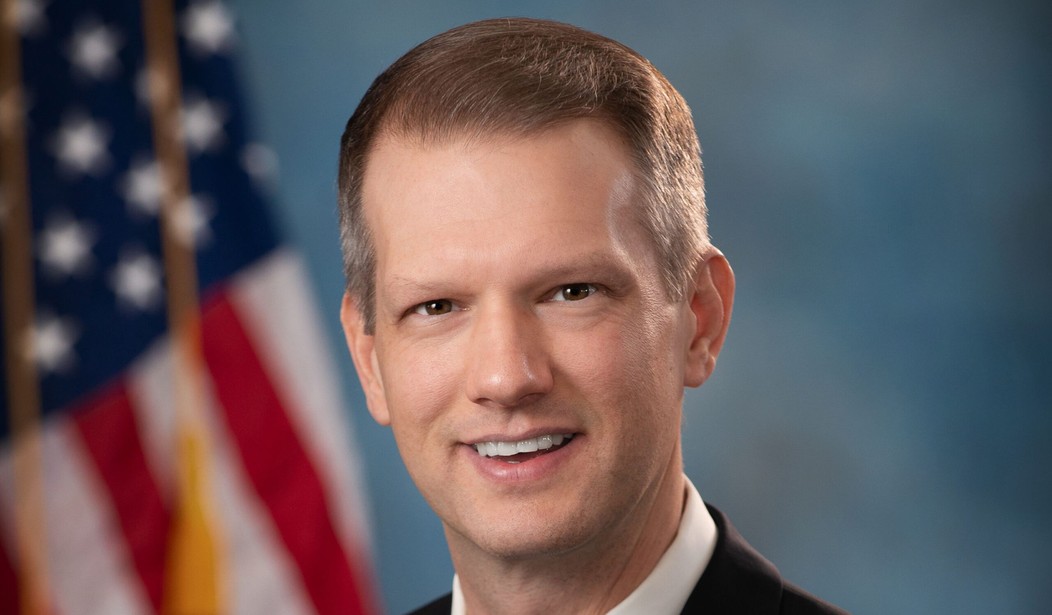In recent weeks, West Virginia has demonstrated incredible leadership in the fight to limit the administrative state’s ability to implement policies based on environmental, social, and governance criteria, a practice commonly referred to as ESG. The recent Supreme Court win in West Virginia v EPA challenges the ability of any federal agency to enact sweeping regulations without explicit Congressional authority. Following the decision, West Virginia Attorney General Patrick Morrisey wasted no time taking on the Biden administration’s effort to push its environmental agenda through the Securities and Exchange Commission (SEC).
While the AG is fighting ESGs in the court system, State Treasurer Riley Moore has been working to ensure that taxpayer dollars do not support financial institutions trying to harm the fossil fuel industry. “As Treasurer, I have a duty to act in the best interests of the State’s Treasury and our people when choosing financial services for West Virginia,” Moore said. “Any institution with policies aimed at weakening our energy industries, tax base, and job market has a clear conflict of interest in handling taxpayer dollars.”
Earlier this year, Moore recommended that lawmakers pass Senate Bill 262, which authorizes the Treasurer to publish a Restricted Financial Institution List. The state legislature gave Moore the power to issue the list and disqualify any firm on the list from state banking contracts.
Moore initially identified six financial institutions potentially engaged in boycotts of energy companies and provided them with written notice. These institutions had 30 days to submit additional information disputing their potential inclusion on the Restricted Financial Institution List. All six institutions submitted responses, which the Treasurer reviewed alongside each institution’s public policy statements.
Recommended: Why Wealthy Coastal Elites Should Mind Their Own Business
Today the list of financial institutions no longer eligible to bid on banking contracts is on the Treasurer’s website. Moore has determined that BlackRock Inc., Goldman Sachs Group Inc., JPMorgan Chase & Co., Morgan Stanley, and Wells Fargo & Co. are engaged in boycotts of fossil fuel companies. Out of the six financial institutions initially served with notice, U.S. Bancorp was not placed on the List because it demonstrated to the Treasurer that it had eliminated policies against financing coal mining, coal power, and pipeline construction activities from its Environmental and Social Risk Policy.
“Each financial institution placed on the Restricted Financial Institution List today has published written environmental or social policies categorically limiting commercial relations with energy companies engaged in certain coal mining, extraction or utilization activities, rather than considering the financial or risk profile for each company,” Moore said. “These policies explicitly limit commercial engagement with an entire energy sector based on subjective environmental and social policies.”
West Virginia annually collects hundreds of millions of dollars in coal and other fossil fuel severance taxes, representing the third-largest revenue source on average for the state’s General Revenue Budget. During the most recent fiscal year, the nearly $769 million in severance taxes paid by coal, oil, and natural gas companies accounted for 13% of the $5.89 billion in General Revenue funds collected by the state — and that does not include income and other taxes also collected from the employment and economic activity these fossil fuel industries generate.
A recent report published by the West Virginia University College of Business and Economics found that in 2019, coal mining and coal-fired power generated $13.9 billion in total economic activity and supported nearly 33,000 jobs in West Virginia. “While the ‘Environmental, Social and Governance’ or ‘ESG’ movement might be politically popular in California or New York, financial institutions need to understand their practices are hurting people across West Virginia,” Moore said. “I simply cannot stand by and allow financial institutions working against West Virginia’s critical industries to profit off the very funds their policies attempt to diminish.”
West Virginia is furthest down the path of putting companies that seek to punish the fossil fuel industry on notice. Moore authored a letter to Climate Envoy John Kerry in May 2021, informing him that states were going to put the financial institutions on alert. Fifteen state treasurers and comptrollers signed on to the principles Moore expressed in the letter.
Related: Manchin Agrees to Climate and Tax Package, Giving Big Win to Biden and the Democrats
In May 2022, one of the signatories, Kentucky State Treasurer Allison Ball, requested an opinion from Attorney General Daniel Cameron regarding whether “stakeholder capitalism” and Environmental, Social, and Governance (ESG) investment practices in connection with the investment of public pension funds are consistent with Kentucky law governing fiduciary duties. According to Ball, a body of law in the state requires state pension board members to manage state pension funds in a way that focuses on profit, solvency, and improving the state’s industrial development and economic health.
Cameron agreed that using ESG criteria was inconsistent with state law. “The pensions of Kentucky’s public employees should not be subject to ‘ESG’ investment practices that allow political decision-making to trump sound financial decisions,” he said. The AG’s opinion will govern the investment actions of the state board and open the door for lawsuits against investment firms that utilize ESG criteria.
Texas passed a law that became effective in September 2021 and allowed the state to boycott financial institutions that used ESG criteria. The state comptroller began sending letters to financial institutions, probing their climate policies in March 2022. The law bars Texas’s state retirement and investment funds from doing business with companies that boycott fossil fuels. The funds are worth approximately $330 billion.
Florida Governor Ron DeSantis appeared on Tucker Carlson’s show Wednesday night, encouraging a Republican coalition to fight ESGs. One has already emerged among over a dozen states that rely heavily on fossil fuels for their economies. DeSantis’ emerging national profile will undoubtedly support the work done to date, but West Virginia is creating the roadmap. If a group of Republican governors emerges, it will do well to build on the work that Morrisey and Moore have already started.
WATCH Treasurer Moore explain how West Virginia is combatting ESGs:










Join the conversation as a VIP Member